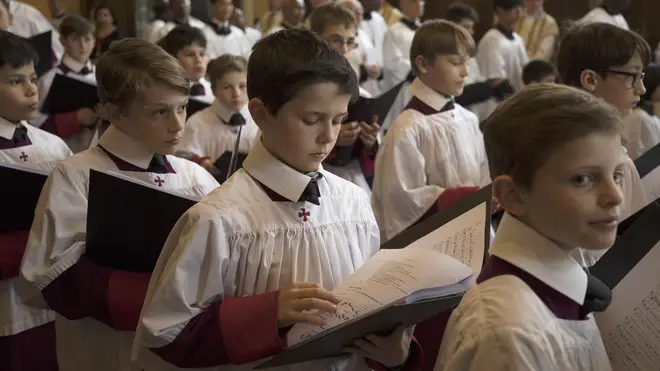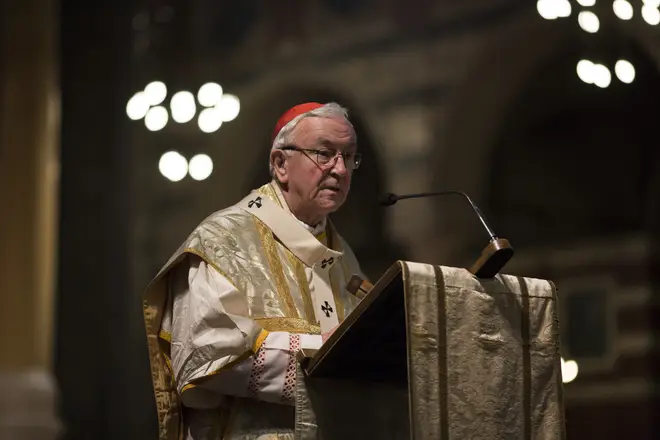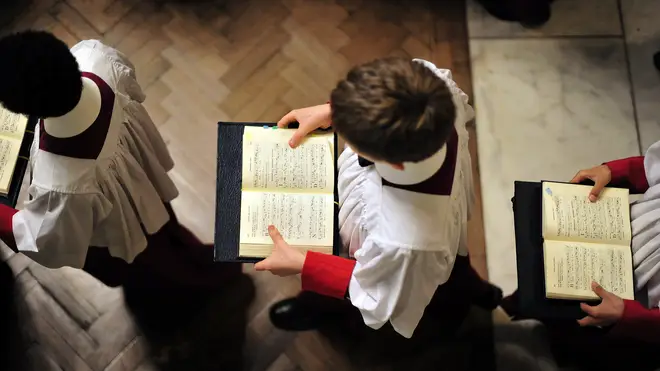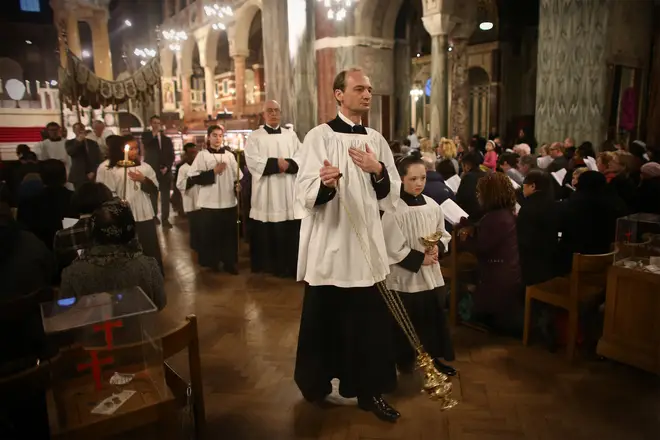On Air Now
Early Breakfast with Lucy Coward 4am - 6:30am
2 March 2020, 13:03 | Updated: 2 March 2020, 13:49

Pope’s envoy is pushing a “toxic” culture at Westminster Cathedral, claim parents who fear the school’s new boarding arrangements are part of a long-term strategy to end the prestigious choir.
Cardinal Nichols, president of Westminster Cathedral Choir School (WCCS) and the Pope’s representative in England and Wales, is being accused of imposing “Stasi-style” gag orders on school staff.
Parents tell The Telegraph they have received payoffs, or have been made to sign Non-Disclosure Agreements (NDAs) in exchange for their silence.
The Cardinal, leader of Roman Catholics in England and Wales, has also been accused of “emotional abuse”, with one parent saying their boys had been “made” into “musical and academic refugees”.
The accusations come after the school introduced controversial new boarding arrangements which see choristers sent home to their families on weekends, in May last year.
Following multiple complaints from parents, head of music Martin Baker quit after 20 years in the post, citing fears that the school’s world-renowned choral tradition was being put at risk. His resignation was described by alumni as a “disaster”.
Read more: Westminster Cathedral Choir’s head of music quits over timetable complaints >

According to the newspaper, at least six current and former staff at WCCS have signed NDAs and received payments to stop them speaking out. Half of the NDAs are believed to be linked to the controversial timetable changes.
Parents wrote an open letter to Cardinal Nichols in May last year, saying the changes would strike “a critical blow” to the choir’s Catholic heritage. Westminster Cathedral Choir had been the only professional Catholic choir in the world to sing daily Mass and Vespers. The choir now only sings on four days a week.
Parents and staff have expressed fears that the timetable changes are part of a long-term strategy to end the choir, fears that the school says are unfounded.
A source confidentially told The Telegraph that the climate of fear at WCCS is such that “one could be forgiven for wondering whether the Cardinal and the school’s headmaster are taking their lead more from the Stasi training manual than the Bible”.

Parents have also questioned why they are still paying £10,500 a year in fees, despite choristers receiving only five days a week of education and boarding, rather than seven.
Read more: Vote for your favourite music and win £1,000 >
For non-London-based families, there are extra difficulties. Parent Derek Siemens, a catholic father who lives with his family in Newport, Wales, told the newspaper his choirboy sons had been made “musical and academic refugees” by the timetable changes.
Siemens claims three of his sons, who were awarded a number of financial grants and music scholarships to attend the school as choristers, had been “discarded” by WCCS. As the family couldn’t afford a weekly commute to London, they were forced to pull their children out of the school.
“Pope Francis said that the Catholic Church should be a ‘church for the poor’,” he said. “But what happened to my boys amounts to emotional abuse at the hands of Cardinal Nichols.”

As part of The Telegraph’s ongoing investigation, composers and musicians have been weighing in on the timetable changes. Composer Sir James MacMillan CBE, who has written music for WCCS, said “standards will drop” and the Cathedral’s musical and prayer life “will be severely damaged”.
He added that Catholics around the world look to the cathedral “as an inspiration”, saying “the international reach and influence of the choir is too precious to squander”.
Responding on behalf of Cardinal Nichols, a Diocese of Westminster spokeswoman defended the new arrangements, telling the newspaper that choristers are “happier and less tired” and “enjoy being with their families at the weekend”.
“The choristers are intrinsic to one of the School’s aims: to support a world-class choir for Westminster Cathedral. The success of the Choir and WCCS are interdependent,” she added.
“There is not, and never has been, any plan to close boarding at the school… on the contrary, there has been significant investment by the Diocese to secure the future of the Choir”.